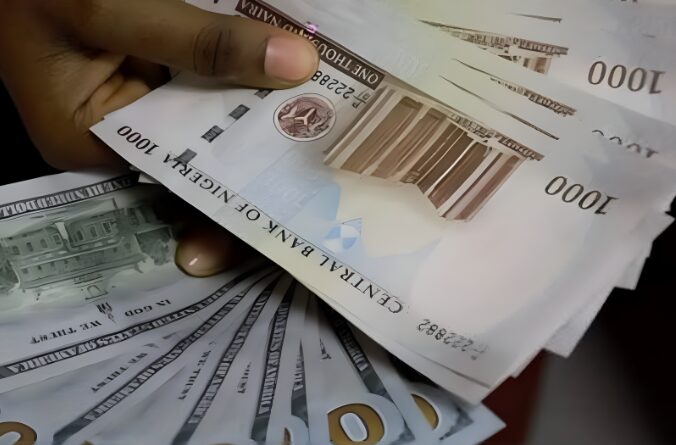The naira showed resilience against the US dollar, strengthening below the N1,500/$ threshold amid anticipation of the US Federal Reserve’s interest rate decision and inflation data.
Market dynamics revealed that the dollar index, which measures the dollar against major currencies, saw a notable decrease, trading below the 105 index points mark. This decline came after reaching a peak on May 14 at 105.46 index points, influencing global investor sentiment and risk appetite towards emerging markets.
In Nigeria, the official exchange rate reflected a minor appreciation of 0.02%, moving from N1,481.32/$ on Tuesday to N1,481.03/$, as reported by FMDQ data. Meanwhile, Bureau De Change (BDC) rates also saw a modest rise of 0.14%, climbing from N1,477/$ to N1,475/$ during the same period.
Recent data from the Central Bank of Nigeria (CBN) indicated that the nation’s foreign reserves stood at $32.7 billion, bolstered by external inflows, despite Nigeria’s subdued oil production. The Nigerian government received $925 million from Afreximbank as part of a $3.3 billion crude oil-backed loan deal with the Nigerian National Petroleum Company (NNPC) Limited, contributing to the reserve increase.
The focus remains on the US Federal Reserve’s decision on interest rates, with expectations that any postponement due to higher-than-anticipated inflation could impact foreign investment inflows into Nigeria and potentially influence the naira’s valuation negatively.
Currency traders are particularly attentive to US inflation data, influencing market sentiment. The latest reports suggest a slight monthly increase of 0.1% in the Consumer Price Index (CPI) for May, translating to an annual rise of 3.4%. Excluding volatile food and energy prices, the core CPI is projected to show a 0.3% monthly increase and a 3.5% annual uptick, indicating persistent inflation pressures.
Market analysts anticipate adjustments in the Fed’s economic projections post-meeting, potentially lowering growth forecasts while revising inflation expectations upwards. The outcome, including the Fed’s policy stance conveyed through its post-meeting statement and Chair Jerome Powell’s press conference, holds significant implications for global financial markets, including Nigeria’s foreign exchange market stability.
Overall, while the naira demonstrated stability below the N1,500/$ threshold amidst global economic developments, ongoing market vigilance remains critical amid potential shifts in US monetary policy and their repercussions on emerging market currencies.


